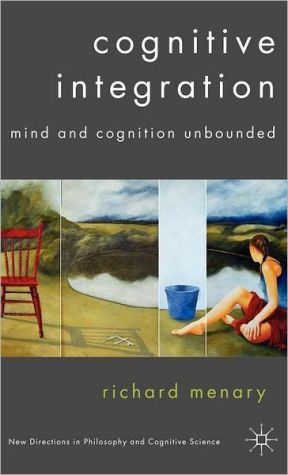

 |

|

Sold Out
Book Categories |
Acknowledgements xi
Foreword xii
Introduction 1
Setting the Scene
Cognitivism and Internalism 10
Introduction 10
What is a cognitive process and what is a cognitive system? 12
The classical and non-classical visions 14
Cognitive internalism 15
The argument from causal capacities 17
Individuation by intrinsic causal properties 18
Causal capacities supervene on intrinsic causal properties 21
First stage of the computational argument: Methodological solipsism 26
The second stage of the computational argument: Integrated computational systems 31
Conclusion 36
Externalism, Dynamics and the Extended Mind 38
Introduction 38
Integration and externalism 39
Cognitive dynamics 42
Active externalism and causal coupling 48
The parity principle 55
Functional similarity 59
Conclusion 60
Defending Cognitive Integration 61
Introduction 61
The "coupling-constitution fallacy" 61
Response to the "coupling-constitutionfallacy" 62
The intrinsic content condition 64
Response to the intrinsic content condition 66
Extended cognitive science is no science at all 69
Response to the extended cognitive science is no science at all objection 71
Conclusion 75
Formulating Cognitive Integration
Cognitive Integration: Embodied Engagements and the Manipulation Thesis 77
Introduction 77
Embodied engagements 78
Expertise 81
A sporting example 81
The manipulation thesis 83
Biological coupling 85
Epistemic action 86
Representation: The Peircean principle 95
The three conditions for the repeatability of the representational triad 96
The representational vehicle 96
Representational salience 97
Representational function 98
The representational triad 99
Conclusion 101
The Evolution of the Hybrid Mind 102
Introduction 102
Organism-environment systems 104
Reciprocal coupling and extended phenotypes 106
Extended phenotypes and adaptation 108
Biological coupling and adaptation 110
Biological normativity and representation 117
Proper functions 118
Example: Bee dances 119
Teleonomic representation 120
Biosemantics and reciprocal coupling 121
Biological coupling as cognitive coupling 125
Hominid evolution 130
Conclusion 134
Cognitive Practices 135
Introduction 135
Cognitive norms 136
Forms of representation 141
Cognitive tasks and external representations 144
What systematicity is 149
Systematicity in infra-verbal animal thought as evidence for the systematicity of thought 154
Grammatical, semantic and pragmatic constraints on linguistic systematic capacities: SVO, poetry and yoda 157
Compositionality 163
Preliminary analysis part 1: Real symbol processing 166
Preliminary analysis part 2: A connectionist account of logic 168
Conclusion 170
Development and the Transformation of Cognitive Abilities 172
Introduction 172
The development of cognitive abilities 172
The social development of higher mental processes 175
The development of manipulative capacities 176
Practical intelligence in animals and children 177
Social interaction and the transformation of practical activity 179
Connectionist language learning without internal structured representations 185
Conclusion 191
Conclusion: Cognitive Webs 193
Notes 194
Bibliography 198
Index 206
Login|Complaints|Blog|Games|Digital Media|Souls|Obituary|Contact Us|FAQ
CAN'T FIND WHAT YOU'RE LOOKING FOR? CLICK HERE!!! X
 You must be logged in to add to WishlistX
 This item is in your Wish ListX
 This item is in your CollectionCognitive Integration: Attacking the Bounds of Cognition
X
 This Item is in Your InventoryCognitive Integration: Attacking the Bounds of Cognition
X
 You must be logged in to review the productsX
 X
 X

Add Cognitive Integration: Attacking the Bounds of Cognition, In Cognitive Integration: Attacking The Bounds of Cognition Richard Menary argues that the real pay-off from extended-mind-style arguments is not a new form of externalism in the philosophy of mind, but a view in which the 'internal' and 'external', Cognitive Integration: Attacking the Bounds of Cognition to the inventory that you are selling on WonderClubX
 X

Add Cognitive Integration: Attacking the Bounds of Cognition, In Cognitive Integration: Attacking The Bounds of Cognition Richard Menary argues that the real pay-off from extended-mind-style arguments is not a new form of externalism in the philosophy of mind, but a view in which the 'internal' and 'external', Cognitive Integration: Attacking the Bounds of Cognition to your collection on WonderClub |